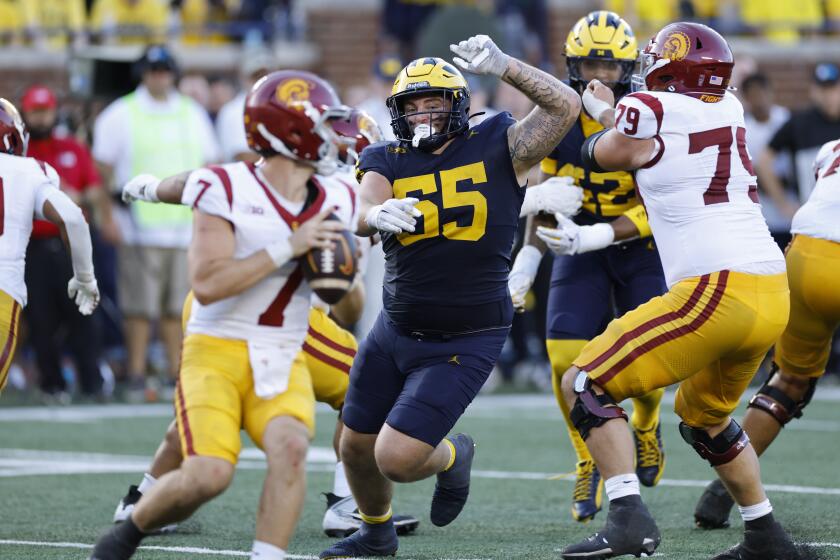Key witness at Roger Clemens’ trial: Evidence saved as insurance
WASHINGTON — An anxious wife drove Brian McNamee to hold on to evidence of Roger Clemens’ steroid use for self-protection, the former trainer testified at the former pitcher’s federal perjury trial.
“She kept saying in the midst of a battle royale, ‘You’re going to go down if something ever happens,’ ” McNamee said.
So as a measure of insurance, McNamee said, he held on to a beer can filled with a used needle, a syringe and a glass steroid ampule he had fished out of Clemens’ recycling bin in 2001. McNamee said he put the waste in a FedEx box and stashed it in a closet at his Queens home.
The waste now forms critical evidence in Clemens’ trial: The government contends it contains traces of the former pitching star’s DNA and steroids, tying him directly to the drug. And that, prosecutors argue, means he lied in 2008 when he told a congressional committee he had never used the drug.
What McNamee and his wife feared happened six years after he stashed the evidence. That’s when a federal agent, Jeff Novitzky, phoned McNamee and said he wanted to talk about steroid abuse in baseball. In his first meeting with the investigators, McNamee said, he agreed to cooperate but tried to protect Clemens as much as possible and kept the physical evidence secret.
“I got caught up in something that led me to have to tell the truth about my clients,” McNamee said. “I had no choice.” Telling on his clients “destroyed me,” he said. “It killed me.”
But the relationship between the two men broke down, McNamee said, in early 2008 when Clemens at a televised news conference played a recording of a phone conversation in which they discussed drug use and the medical history of McNamee’s son Brian.
Enraged by the breach of his son’s privacy, McNamee said he turned over the physical evidence to his lawyers, who passed it on to the government.
Before 2008, the issue of steroids did not seem to threaten to divide Clemens and McNamee. After a 2006 article in the Los Angeles Times reported Clemens and McNamee were named in a federal affidavit as being tied to steroid use in baseball, the two exchanged emails, which were shown to jurors.
McNamee said he would not “rat” or “flip” on his friend, and Clemens replied by calling the Times reporter a name and accusing whoever leaked the affidavit of starting a “witch hunt.”
The original Times story proved to be inaccurate when court records were later unsealed — Clemens was not named in the affidavit — and The Times ran a correction.
McNamee also said in his testimony Tuesday a line in the report that he recommended a source of amphetamines to Jason Grimsley, a former pitcher for the New York Yankees, Baltimore Orioles and Angels, was false.
Before the end of the day’s proceedings, McNamee faced a few sharp questions from Clemens’ lead attorney, Rusty Hardin, who has signaled he will make an all-out attempt to damage his credibility.
Earlier in the day, Clemens lawyer Mike Attanasio struggled to keep his annoyance with McNamee concealed, after McNamee made indirect references to supplying HGH to Andy Pettitte, which Judge Reggie Walton had banned.
“To have this man, of all people, try to undermine what the lawyers and the court have done is shameful,” Attanasio said.
He added the defense will seek remedy for McNamee’s slips. Clemens’ first trial last July collapsed after a government error led to jurors seeing inadmissible evidence.
Tuesday morning, Walton explained his unusual policy of allowing jurors to ask questions of the witnesses, saying it helps keep them focused on the trial.
It seems as though the jury needs something to keep it alert: A second juror was dismissed Tuesday for sleeping through portions of the evidence.
More to Read
Go beyond the scoreboard
Get the latest on L.A.'s teams in the daily Sports Report newsletter.
You may occasionally receive promotional content from the Los Angeles Times.










